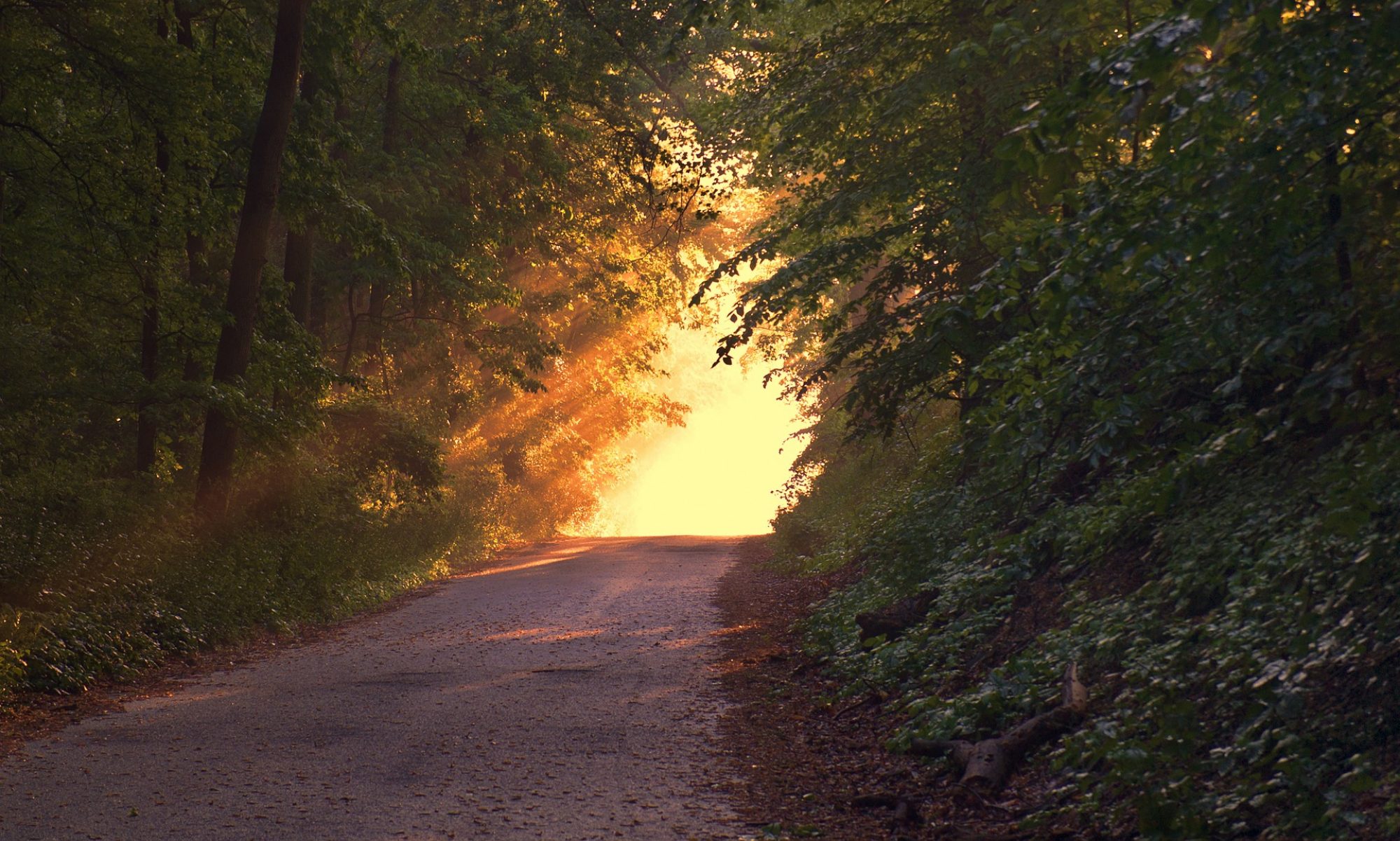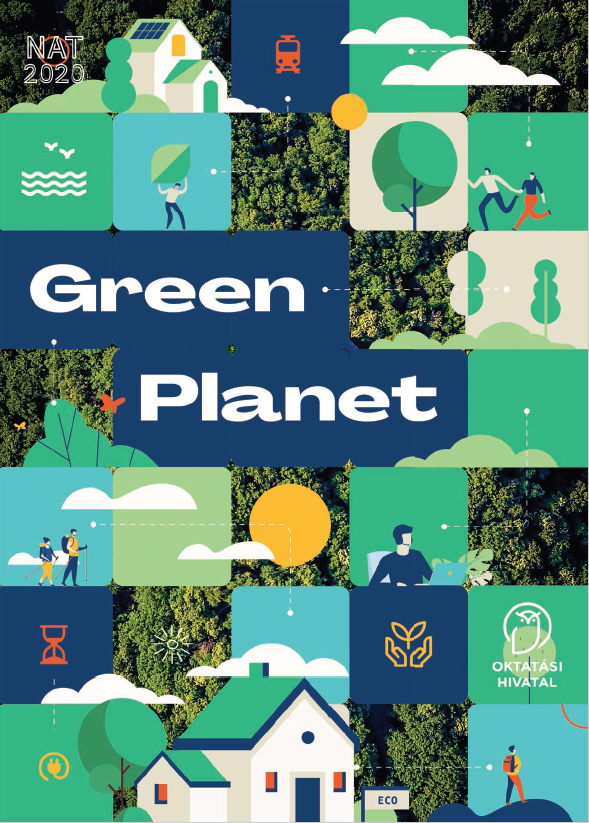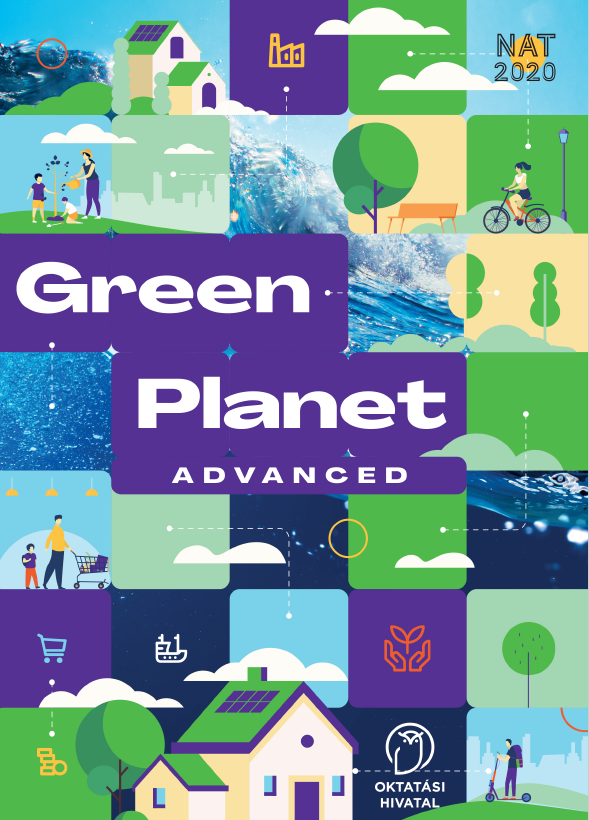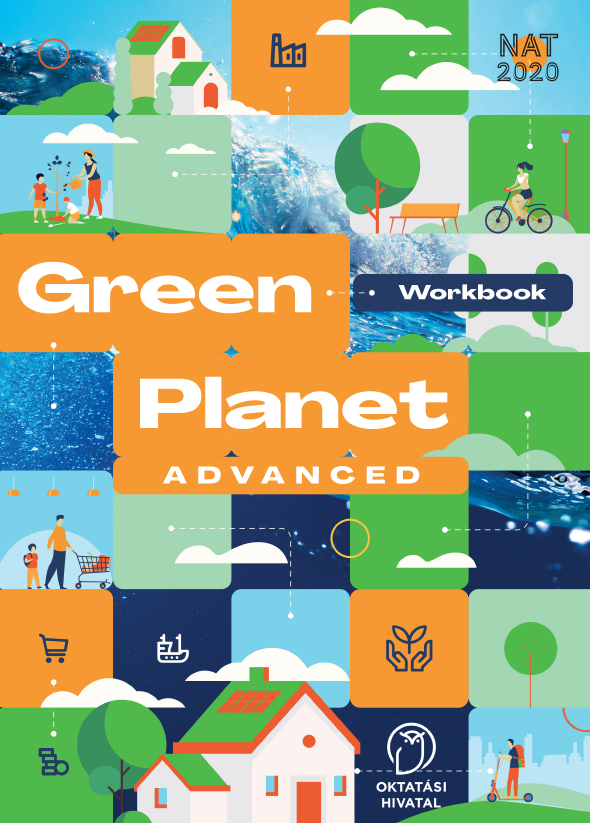Green Planet Sustainability Education Toolkit & Research
In 2021, Hungarian ESD reached a new milestone: „Green Planet” Sustainability Framework Curriculum, textbook, workbook and teacher guide were published, with the professional management of Katalin Czippan (CEO of Cz&K) and contribution of our experts.
The aim of the Toolkit, is to highlight the connections between different areas of life, based on the everyday experiences of the students, and to encourage young people to choose a sustainable lifestyle, make conscious decisions and take actions.
In 2022, the Green Planet for advanced learners, 11-12 graders is ready, with the possibility to choose a project graduation exam for 2024.
The Green Planet program is currently being extended to vocational and primary education.
The development takes place within the framework of the project of Alapértékek Non-profit Ltd, under the patronage of János Áder, former president of Hungary, with the support of the Blue Planet Foundation, under the professional support of the Hungarian National Committee for UNESCO and the professional recommendation of IUCN Commission on Education and Communication (CEC).
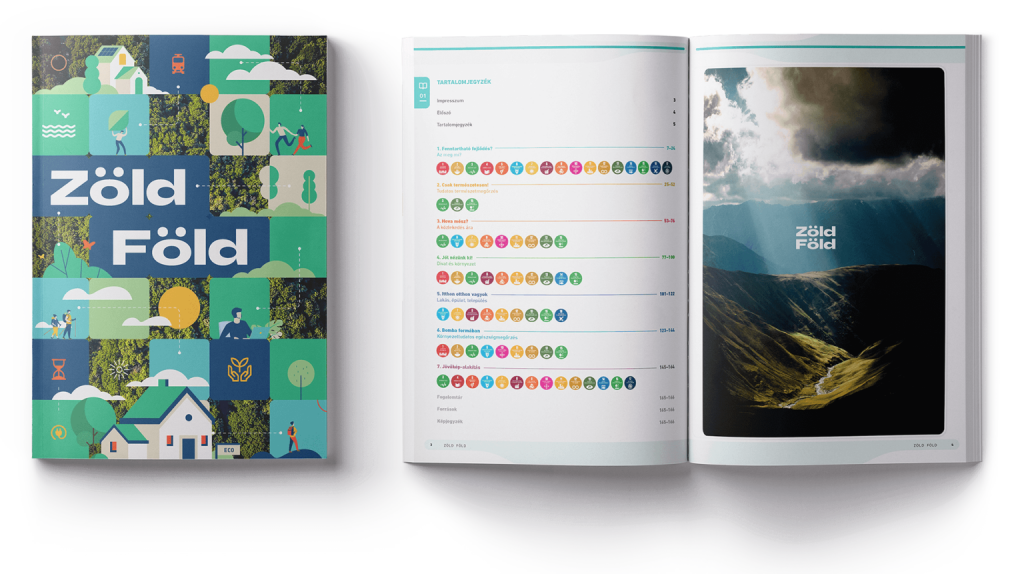
forrás: kbka.org
You can download the current documents in English.
9-10th Grade: Framework Curriculum
9-10th Grade: Teacher’s Handbook
11-12th Grade: Framework Curriculum
ESD in European Countries – Comparative Research
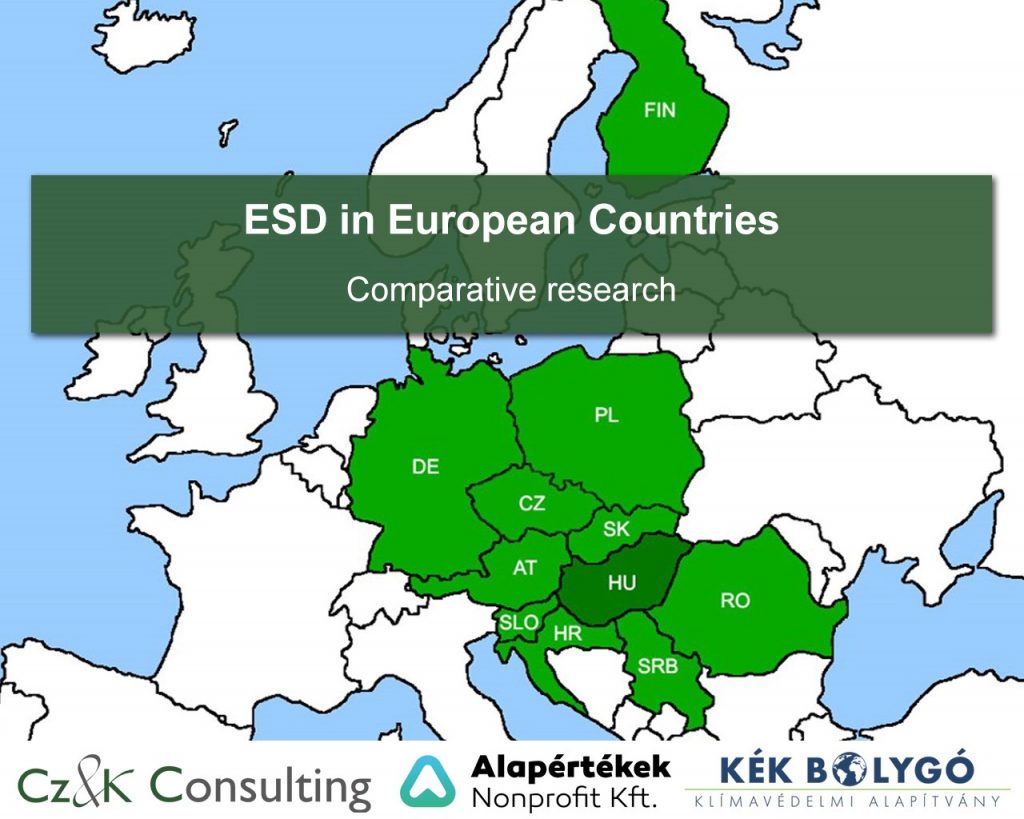
In order to identify the novelty of Green Planet and to collect ideas from other countries, Cz&K Consulting carried out comparative research on European practices as part of the project.
Countries examined: Austria, Czech Republic, Finland, Croatia, Poland, Hungary, Germany, Romania, Serbia, Slovakia, Slovenia.
The results of the research show that environmental education for sustainability (ESD) appears in some form in the national core and framework curricula in each examined countries. In most cases as a cross-curricular topic, integrated into traditional science and social science subjects (Slovakia, Croatia, Austria, Poland, Czech Republic). In Hungary, Romania, Serbia and Slovenia it is present as an elective stand-alone subject. In Romania at ISCED 2 (primary school), in Serbia at ISCED 3 (secondary school) level, while in Hungary and Slovenia there are stand-alone subjects at both levels of education. The Green Planet can be said to be more complex, because it includes a textbook, workbook, teacher’s manual and teacher training, and it also can be chosen as a graduation subject. It is also important to highlight the “whole school” approach presented through the Finnish and German examples. It’s strengths are in the integration of sustainability into the institutional operating culture, the wide-ranging subject integration and the large-scale local autonomy in local curricula and pedagogical programs.
Green Earth builds on the knowledge acquired in other subjects, organizes the areas of school and home life into a system, directs attention to sustainable thinking and living, and develops the necessary competencies. Therefore, it will also make a major contribution to the whole school approach and to spreading a culture of sustainability at all levels.
We are currently awaiting feedback from the international community of experts to complete the results of the research, on the basis of which it will be extended in the future.
Authors: Daniel Sziva, Katalin Czippan (Cz&K Consulting Ltd.)
The research was commissioned by Alapértékek Non-profit Ltd.
Teaching sustainability in european countries

